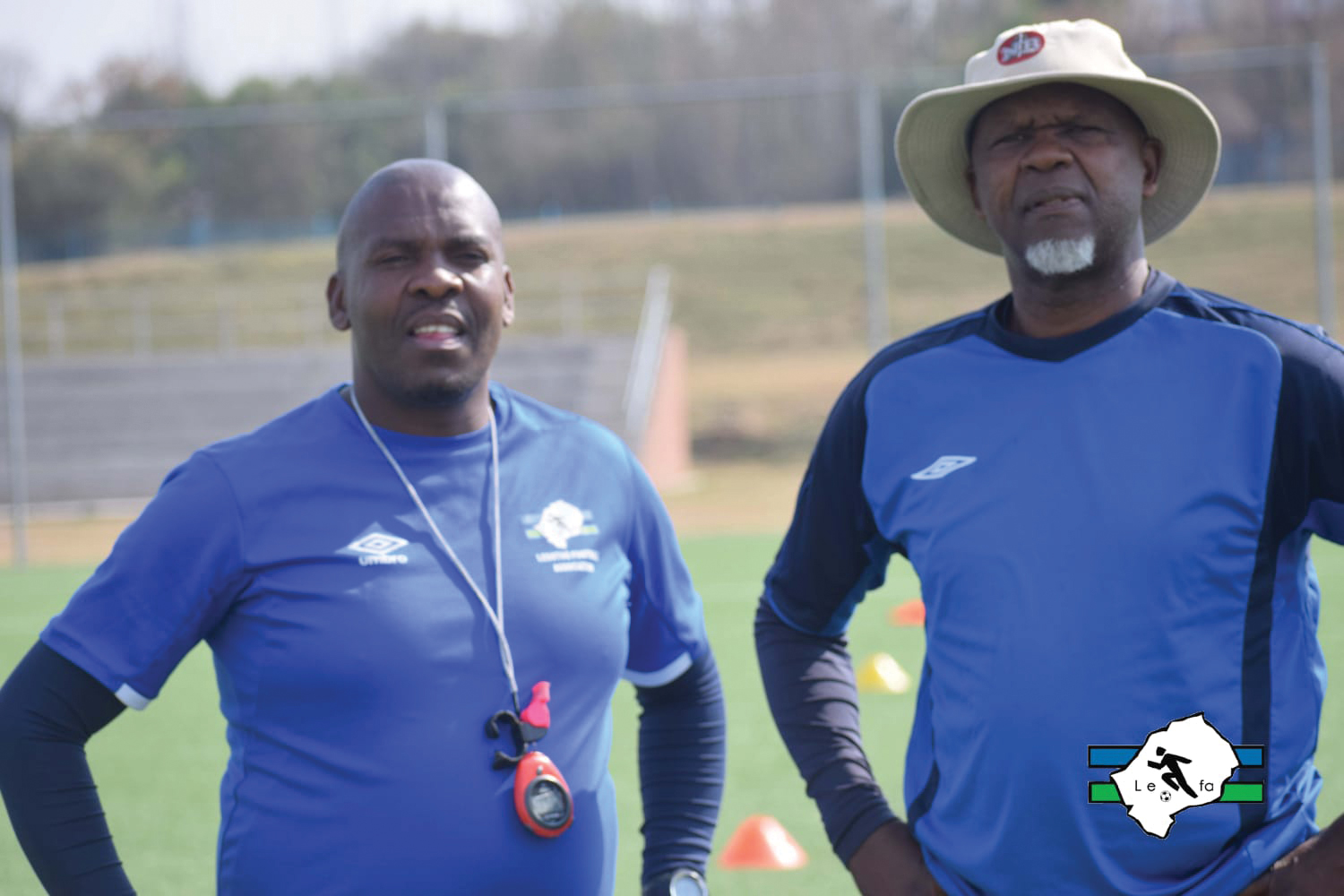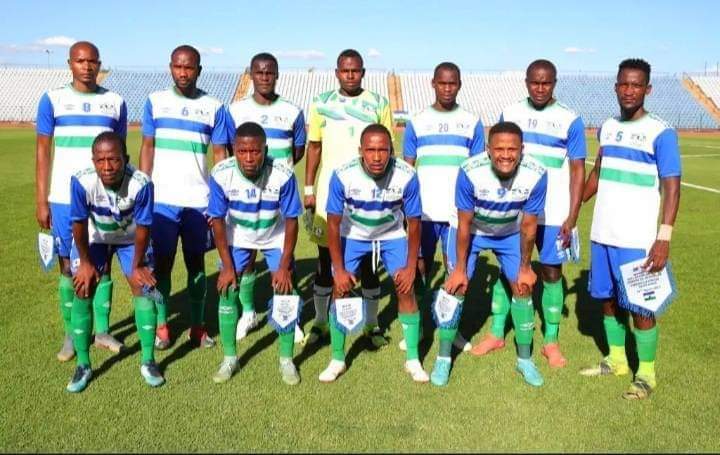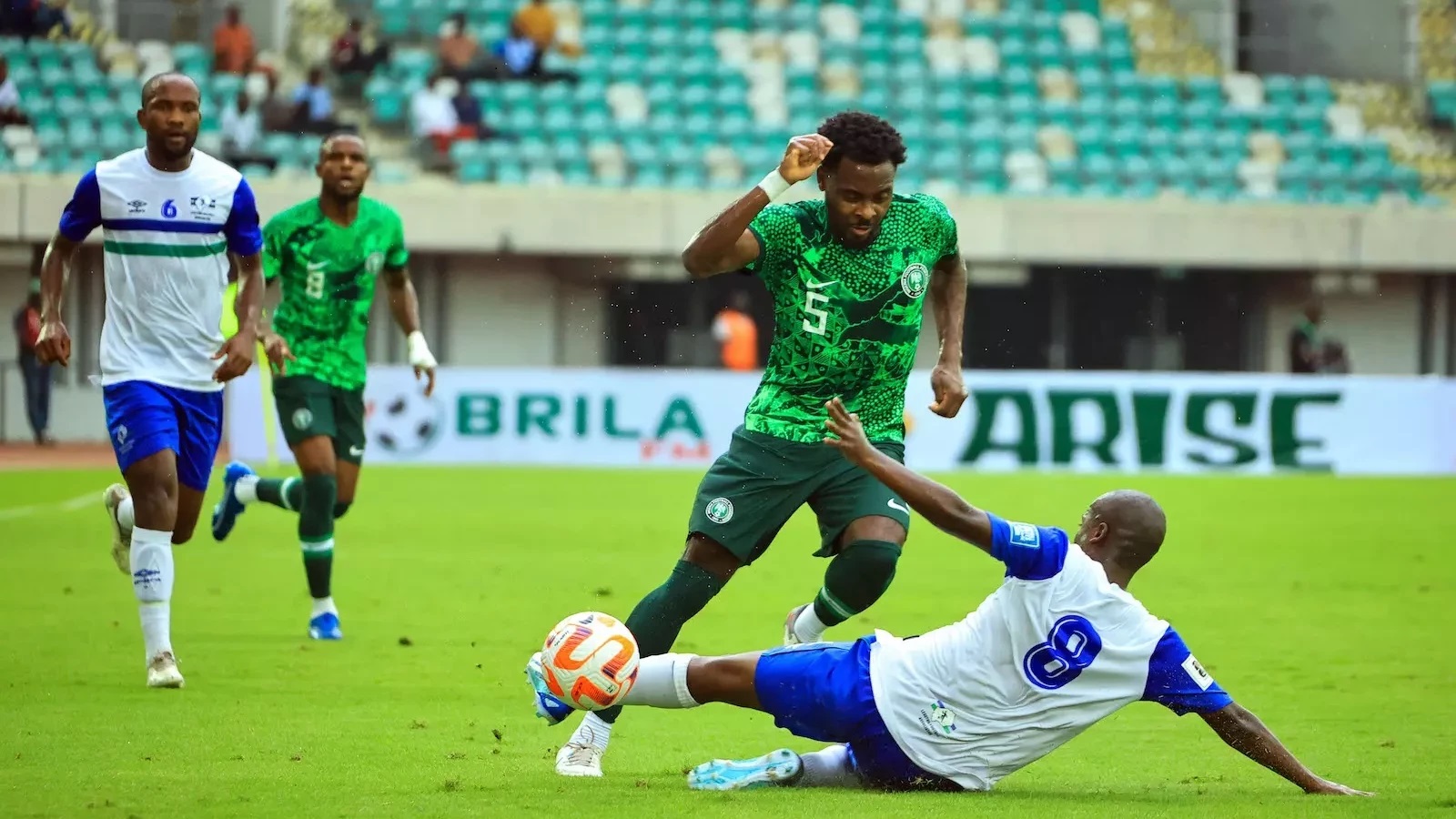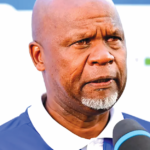Lesotho national team head coach, Makhetha Leslie Notši, has claimed that Likuena’s struggles in the FIFA World Cup qualifiers are closely tied to the poor quality of the domestic league.
His comments follow heavy back-to-back defeats that have left the team’s campaign in jeopardy. Likuena were thrashed 3–0 by South Africa at Toyota Stadium in Bloemfontein before going down 4–0 to Benin in Ivory Coast.
The results leave Lesotho in fifth place in Group C with just six points, far behind leaders South Africa on 17 and Benin on 14.
Addressing journalists this week, Notši expressed disappointment with the results but praised the players’ commitment.
“I would not say I am satisfied, but I do acknowledge the effort and commitment shown by the players in representing their country,” he said.
“We started off strong, but it became increasingly clear that things would get tougher as the campaign progressed.”
He said the deeper problem lies in the structural weaknesses of Lesotho’s football ecosystem, especially the domestic league.
“Many of our players come from local clubs, and the standard of our league reflects the quality of our national team. It is much harder to select players when the level of competition they face regularly is not high. In contrast, our opponents often field players who are used to playing in much stronger leagues.”
Notši acknowledged that preparations for this campaign had improved compared to previous years, thanks to a stronger technical setup and new assistant coaches. But the underlying issue of league quality, he noted, continues to undermine progress.
Assistant coach Bafokeng Mohapi reinforced this point, stressing that the inactive domestic league has left players short on fitness and match sharpness.
“Clubs in other countries are already deep into their pre-season or competitive calendars, while our league has yet to begin. That puts us at a significant disadvantage.” Mohapi said.
He added that Likuena’s performances often dip in the final 25 minutes of matches, a sign of the conditioning gap created by the lack of competitive domestic football. Mohapi also cited unfamiliar pitch conditions in South Africa and different match balls in Ivory Coast as additional hurdles, though he emphasized that these were secondary to the league problem.
Looking ahead, Likuena face Nigeria away on October 6 before hosting Zimbabwe on October 13. Notši called for resilience and unity as the team seeks to restore pride.
“We are not giving up. The focus now is on regrouping, improving our consistency, and giving our best in the remaining matches,” he said.
Summary
- “I would not say I am satisfied, but I do acknowledge the effort and commitment shown by the players in representing their country,” he said.
- He added that Likuena’s performances often dip in the final 25 minutes of matches, a sign of the conditioning gap created by the lack of competitive domestic football.
- Mohapi also cited unfamiliar pitch conditions in South Africa and different match balls in Ivory Coast as additional hurdles, though he emphasized that these were secondary to the league problem.

Seabata Mahao is a general news reporter with special focus on Business and Sports. Started working at Newsday in 2021. Working in a team with a shared goal is what I enjoy most and that gives me the motivation to work under any environment leading to growth.










